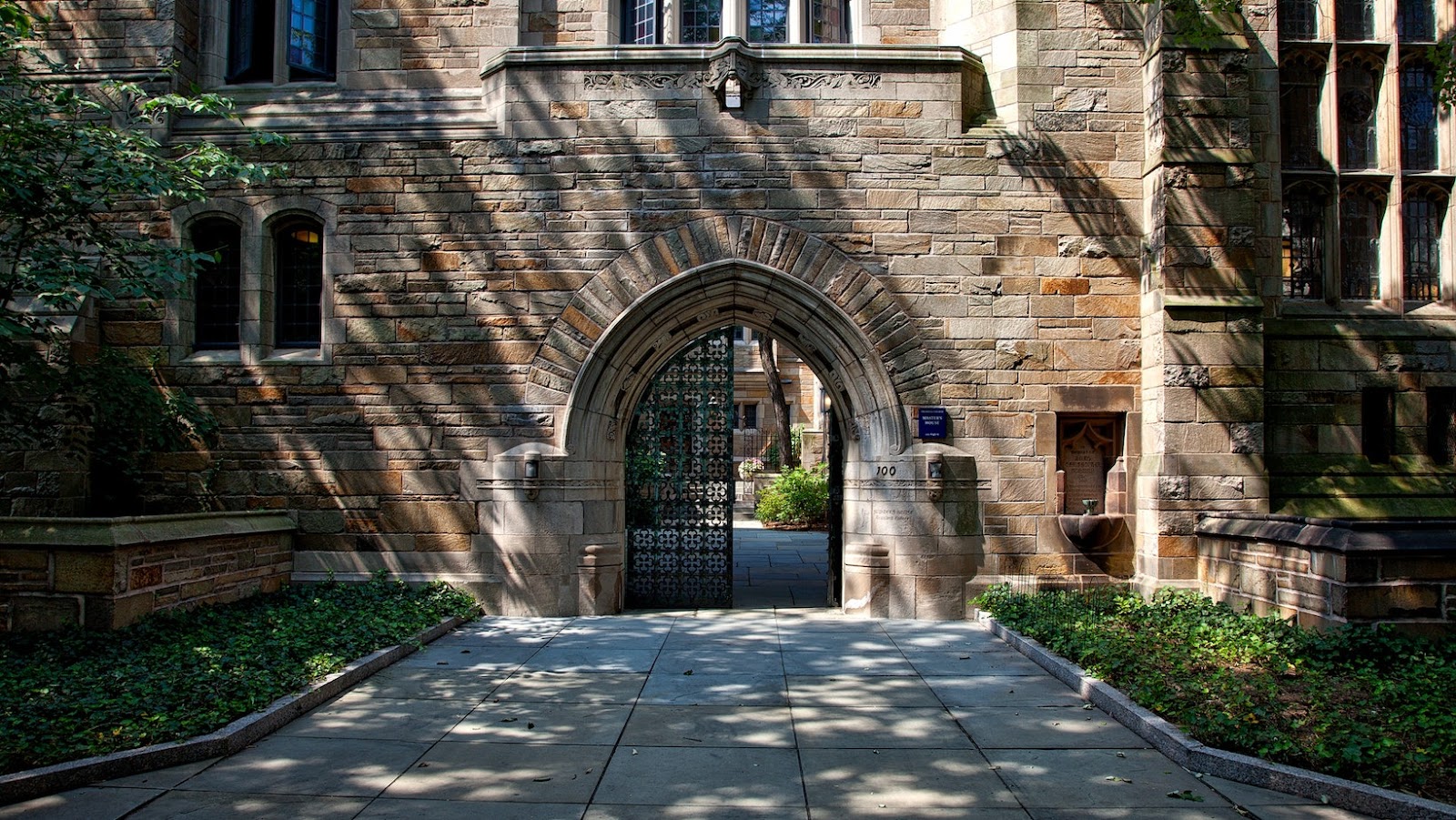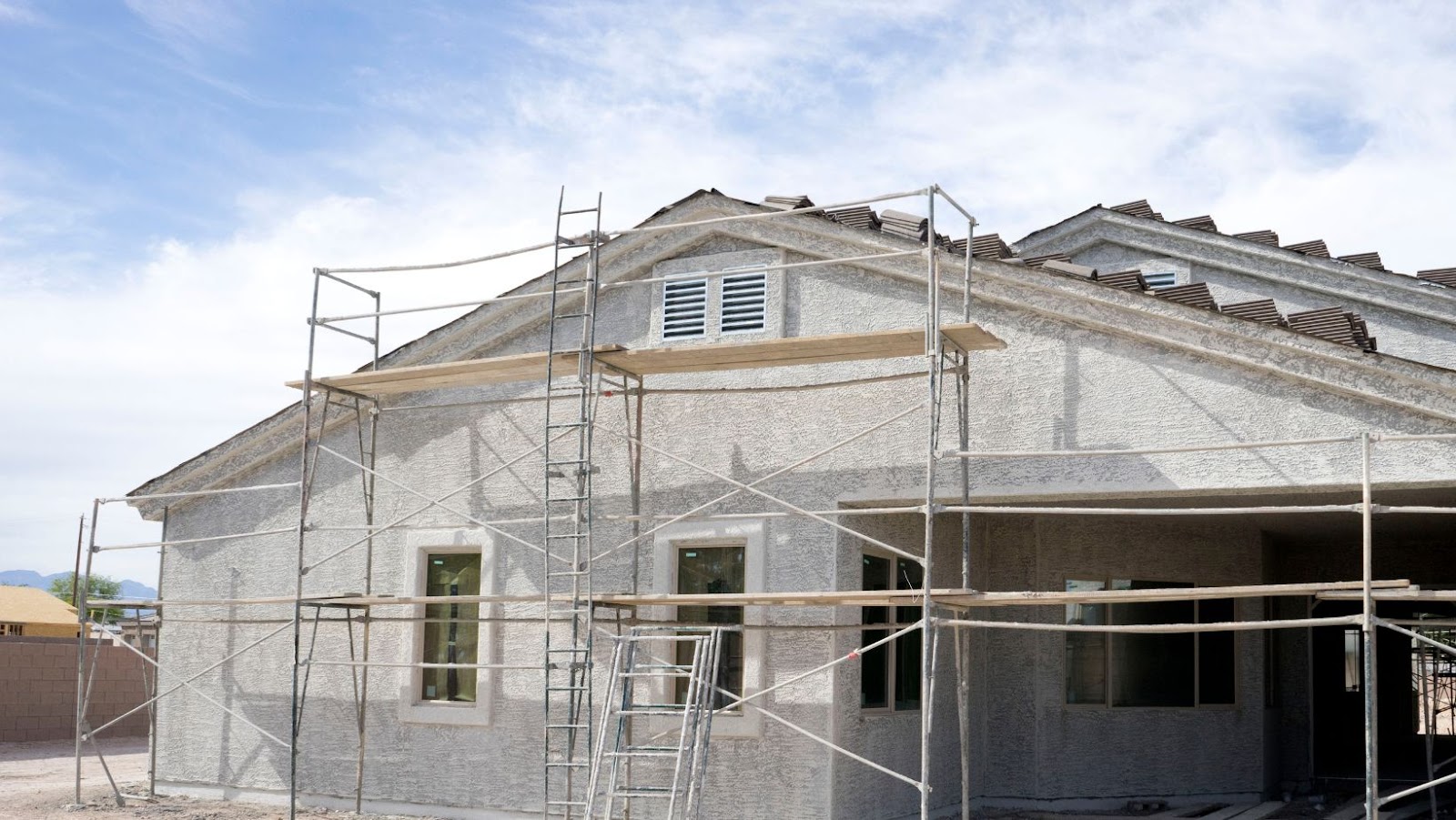Is your home in need of a construction facelift? Have you been trying to decide between stucco and brick for your new construction project? You’re in luck!
This article will explain the key differences between stucco and brick so that you can make an informed decision. You don’t want to end up with a construction blunder. So, keep reading to discover which is the best choice for you!
Introduction
Brick construction and stucco are two building materials that have been used for centuries, and each has its unique advantages and disadvantages.
Brick is a traditional, durable and fire-resistant material that provides excellent insulation while requiring little maintenance. Stucco, on the other hand, is a versatile material that can be applied to a variety of surfaces, is easy to install, and can be painted in any color. However, stucco is more prone to cracking and damage from moisture, and if not properly maintained, it can become a breeding ground for mold and mildew.
When deciding between the two materials for your construction project, it is essential to consider factors such as budget, climate, and the desired aesthetic. Ultimately, both materials can be used to create beautiful and functional structures that can stand the test of time.
Types of Construction: Brick vs Stucco
When it comes to choosing the right type of construction for your home or building, it’s important to consider the key differences between brick and stucco construction.
- Brick construction is durable and long-lasting, with a classic look and feel that adds value to your property. However, brick can be costly to install and requires a skilled mason to ensure proper installation.
- Stucco construction is affordable, quick to install, and offers a range of color and texture options to suit your design preferences. However, stucco can crack or chip over time and requires regular maintenance to keep looking its best.
Ultimately, the decision between brick and stucco construction will depend on your budget, design goals, and long-term maintenance plans for your property.
Pro tip: consult with a licensed contractor to determine the best type of construction for your specific needs and goals.

Advantages of Brick Construction
Brick construction offers several advantages over stucco construction, making it the preferred choice for many homeowners. Here are some of the advantages of brick construction:
- Durability: Brick is a highly durable and long-lasting material that can withstand harsh weather conditions, impacts, and wear and tear. Compared to stucco, which can crack and chip easily, brick has a longer lifespan and often requires minimal maintenance.
- Energy efficiency: Brick is an excellent insulator that can help regulate indoor temperatures and reduce energy consumption. This can lead to lower utility bills and a more comfortable living environment.
- Aesthetics: Brick comes in a variety of colors, textures, and sizes, allowing homeowners to create a unique and visually appealing look for their homes. Stucco, on the other hand, has a more limited range of colors and textures.
- Protection: Brick is fire-resistant and offers excellent protection against fires, while stucco is vulnerable to catching fire and can spread flames quickly.
Pro tip: It is recommended to hire a professional contractor who specializes in brick construction to ensure the highest quality and durability of your building.
Advantages of Stucco Construction
Stucco construction has several advantages over brick construction, making it a popular choice among homeowners and builders.
Stucco offers a seamless finish that is highly resistant to fire, mold, and parasites. Its flexibility makes it more durable compared to brick, which can chip or crack easily. Stucco is also a better insulator, which means it can help regulate indoor temperature and reduce energy consumption.
Another advantage is that stucco can be customized to mimic the appearance of other materials, which gives homeowners the freedom to choose from different textures, colors, and finishes. Furthermore, stucco is a cost-effective option, as it requires less maintenance than brick and can last up to 50 years. So, if you’re aiming for affordability, flexibility, durability, and low maintenance, stucco construction is an excellent choice for your next construction project.
Pro tip: Consult with a professional stucco contractor and choose the right stucco type to suit your project’s specific requirements.
Disadvantages of Brick Construction
While brick construction is highly valued for its durability, strength, and aesthetic appeal, it also comes with several disadvantages that homeowners should consider when choosing between brick construction and stucco.
Here are some of the disadvantages of brick construction:
- Cost: Brick construction is more expensive than stucco due to the labor-intensive installation process and higher material cost.
- Maintenance: Bricks are porous, which means they absorb moisture and are susceptible to cracks, erosion, and discoloration. This can make maintenance and repair more costly and time-consuming compared to stucco.
- Limited Design Options: While there is a wide range of brick sizes, shapes, and colors available, the options are still more limited compared to stucco, which can be molded and painted to achieve a variety of textures and finishes.
Consequently, when deciding between brick construction and stucco, it is important to consider both the advantages and disadvantages of each material to make an informed choice that meets your needs and budget.

Disadvantages of Stucco Construction
While stucco construction has its benefits, there are also several disadvantages that homeowners should be aware of when considering stucco vs. brick construction.
Disadvantages of stucco construction include:
- Prone to cracking: Stucco is more likely to crack than brick due to its susceptibility to water damage and temperature changes.
- Moisture damage: Stucco is more likely to absorb moisture than brick, which can lead to mold, mildew, and structural damage.
- Maintenance: Stucco requires more maintenance than brick, including regular cleaning, sealing, and repairs.
- Aesthetics: While stucco can create a unique and textured look, it may not have the timeless charm and durability of brick.
When deciding between stucco vs. brick construction, it’s essential to weigh the pros and cons to determine which option is best for your home’s needs and your budget.
Brick Construction vs Stucco
Brick and stucco are two popular materials used in construction, but which one is more cost-effective? While the initial cost of stucco is lower than brick, long-term maintenance costs and the lifespan of the materials need to be taken into account to make an accurate cost comparison.
Brick costs more initially, but it requires less maintenance and has a lifespan of up to 100 years. Stucco, on the other hand, may require frequent repairs and replacement, and only has a lifespan of 20-30 years. When choosing between the two materials, it’s essential to consider the upfront cost, maintenance expenses, and the projected lifespan of your construction project to determine which option is more cost-effective in the long run.
Conclusion
In conclusion, both brick construction and stucco have their unique advantages and disadvantages, and choosing the right option for your home construction project depends on various factors such as budget, durability, insulation, and aesthetics. Brick construction is durable and fire-resistant, but it can be more expensive and challenging to install compared to stucco. Brick homes also require more maintenance and are not as energy-efficient as stucco homes.
On the other hand, stucco is affordable, weather-resistant, and offers better insulation for your home. However, it is not as durable as brick and is susceptible to water damage and cracking. Therefore, it’s crucial to consider your priorities and consult with an experienced contractor or builder before making a decision. Keep in mind that both options require regular maintenance and care to ensure their longevity and functionality.
Pro tip: Research and compare the costs, benefits, and maintenance requirements of each option before choosing brick or stucco for your home construction project.
